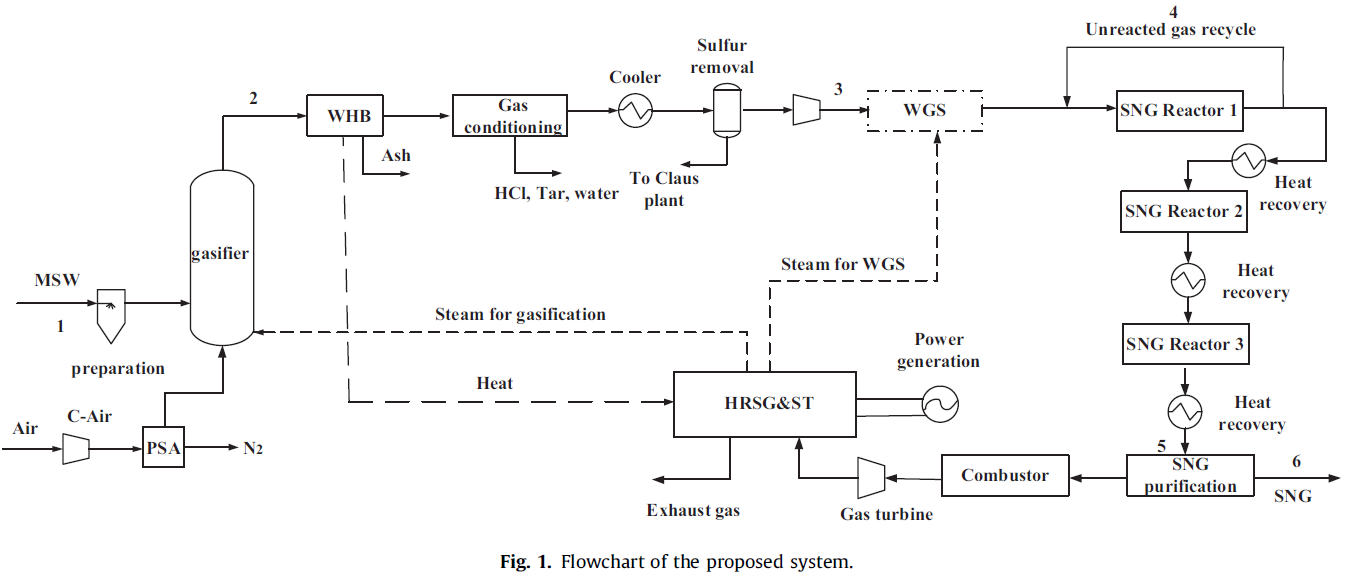A cogeneration system for simultaneously producing synthetic natural gas (SNG) and electric power from municipal solid waste (MSW) is developed. This process provides a disposal method for MSW that is environmentally sustainable and uses as an alternative energy source. Rather than converting all of the synthesis gas into end products, in the proposed system the unconverted gas is recovered for power generation in a combined-cycle unit. The overall efficiency of the proposed system is 36.33%. The energy efficiency of this system is approximately 8.7% higher than that of a standalone SNG production system, and 15.02% higher than that of an MSW incineration system. A sensitivity analysis shows that by increasing the H2/CO ratio, SNG production and SNG conversion efficiency can be increased, but the overall efficiency does not increase. Increasing the recycling ratio of the unconverted gas (Ru) benefits for the SNG yield up to a value before Ru/(Ru + 1) = 0.7, and the overall system efficiency reaches its maximum value at Ru/(Ru + 1) = 0.9. Therefore, partial recycling of the unreacted gas is more efficient up to a point, and higher recycling ratios are less efficient.
A cogeneration system that converts MSW to SNG and power by recovering part of the unconverted gas was investigated in this study. The simulation results showed that the SNG conversion efficiency, the electricity efficiency and the overall efficiency were 30.9%, 5.43% and 36.33%, respectively. Compared with single-SNG system and incineration system for power generation, approximately 8.7% and 15.02% of the overall system efficiency benefits were gained from this proposed polygeneration system, respectively.
A sensitivity analysis indicated increasing the extent of H2/CO ratio adjustment offered no benefits to improve the system efficiency because of the large quantity of steam required to adjust the contents of the syngas. The recycling ratio of the unconverted gas (Ru) should be restricted (such that Ru/(Ru + 1) < 0.9 in this study) to avoid reducing the overall system efficiency owing to the substantial increase in work required to compress the unreacted gas for recycling.
The results of this study indicate that ‘‘one-sided” processing of MSW might not be the most effective and efficient method, whereas polygeneration (e.g. producing both SNG and power) can achieve a more efficient and environmentally sustainable utilization of MSW. Further research on polygeneration system that makes the best use of MSW is important because the volumes of MSW produced globally with continue to increase with economic development, population growth and improved living standards.
